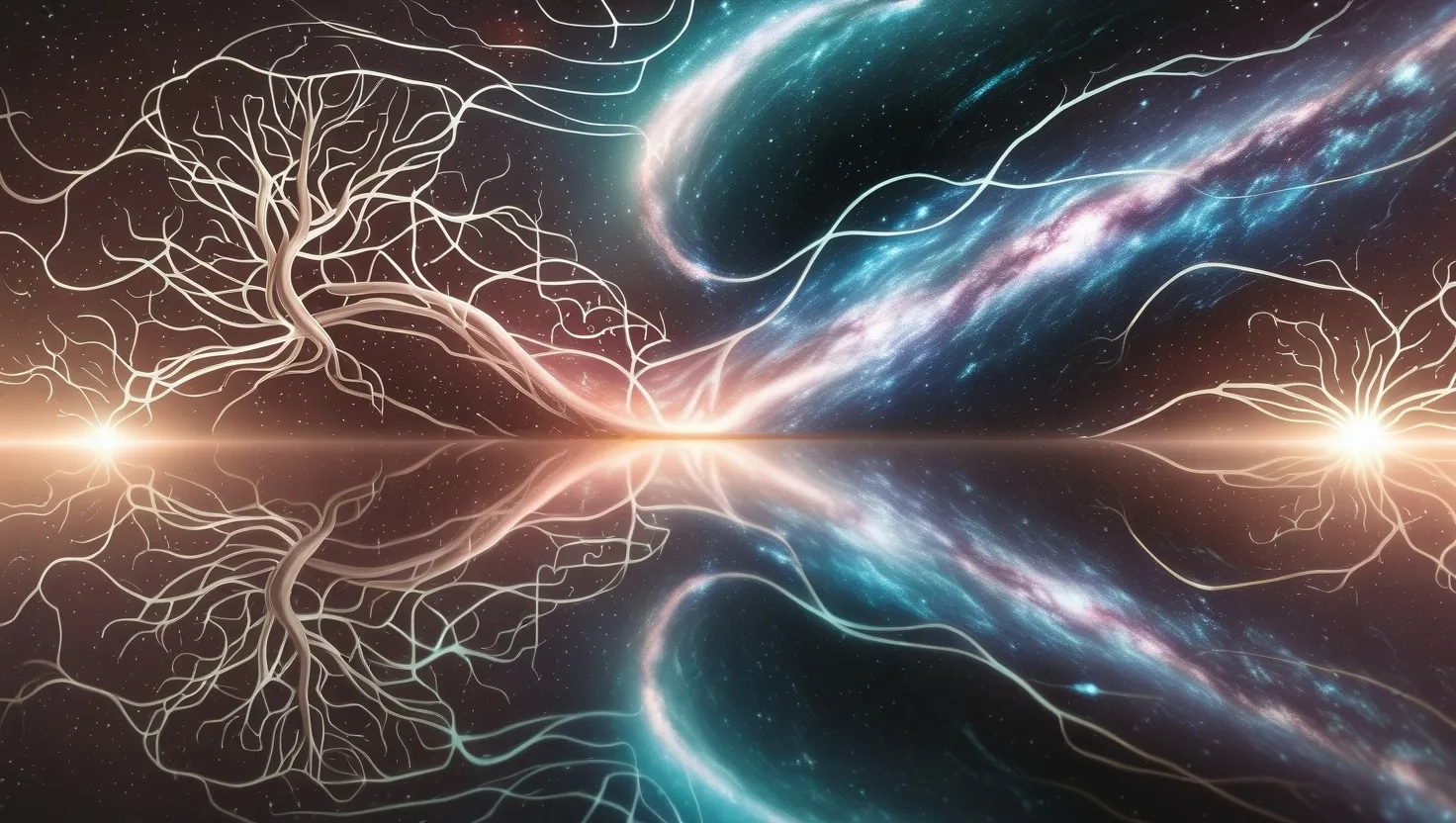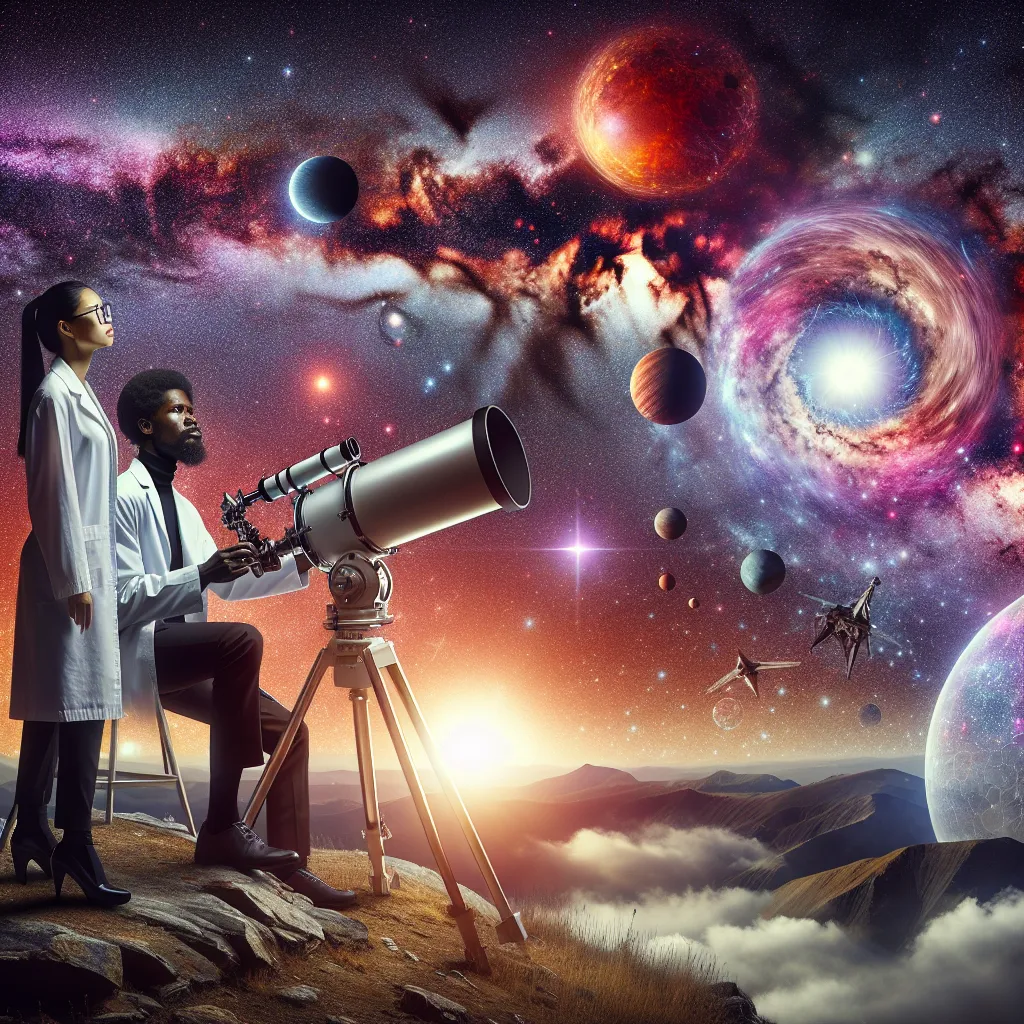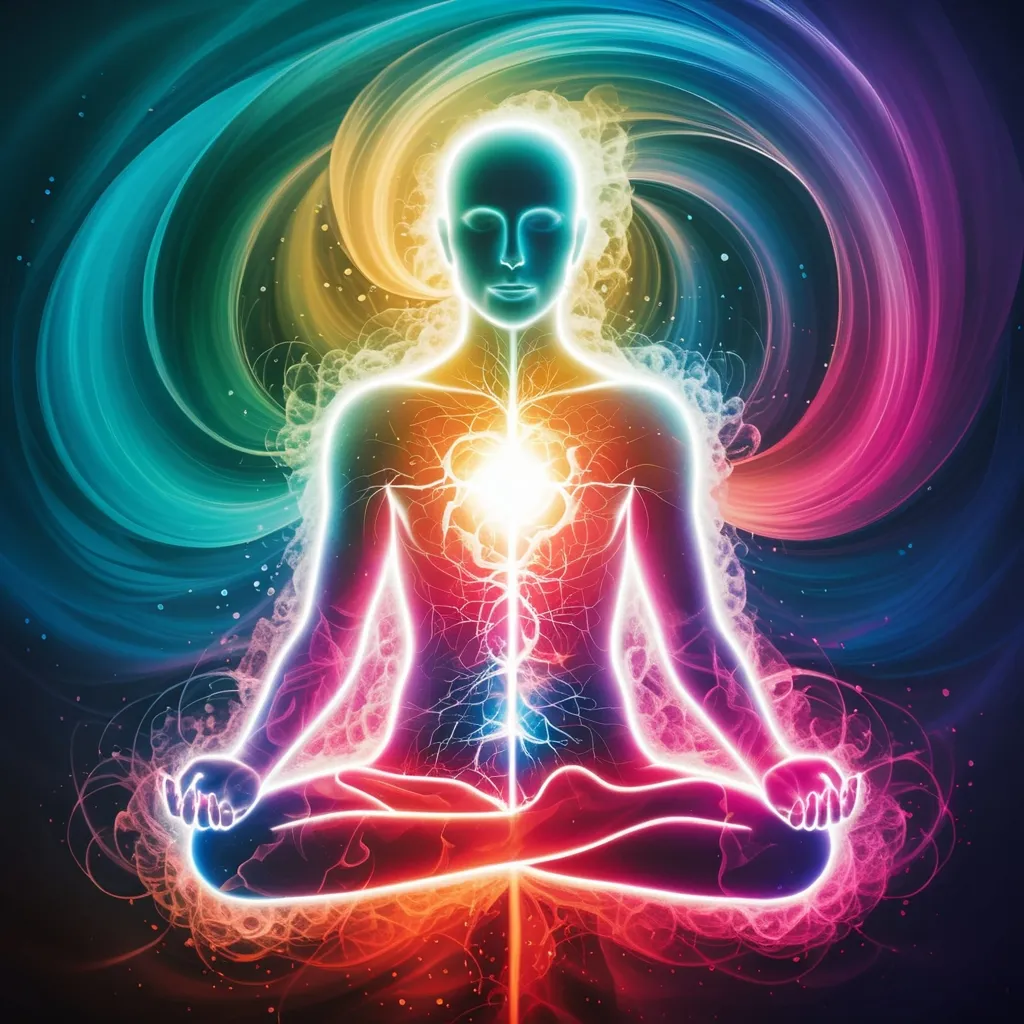Have you ever stopped to think that your thoughts might be more connected to the cosmos than you imagine? There’s a fascinating theory that suggests our minds could be fractal reflections of the universe itself. This idea is not just a whimsical notion but is grounded in some intriguing scientific concepts.
Imagine the swirls in your brain cells resembling the spiraling galaxies of the universe, or your thought patterns mirroring the branching networks of a tree. This concept is rooted in the intersection of quantum physics and fractal geometry, two fields that, when combined, offer a unique perspective on the nature of consciousness.
The Quantum Connection
Quantum physics, known for its counterintuitive principles, has long been linked to the concept of consciousness. Theories like the Copenhagen interpretation suggest that an observer’s measurement can affect the state of a quantum system, implying a connection between conscious observation and physical reality. This connection is further explored in the “quantum mind theory,” which posits that quantum mechanics, with its phenomena of entanglement and superposition, might play a significant role in brain function and ultimately in the origins of human consciousness.
Fractals and the Brain
Fractals, with their infinitely complex patterns that repeat at progressively smaller scales, offer a glimpse into the vast complexity of nature. In the context of the brain, fractals become particularly interesting. Microtubules, found in every neuron, are structured in fractal patterns, according to the Penrose-Hameroff theory of quantum consciousness. These microtubules, which transport substances within the cell, are believed to enable quantum processes to occur within the brain.
The fractal nature of these microtubules allows for the emergence of complex patterns from simple, repeated structures. This is why fractals have been used to describe the complexity of human consciousness. They represent a middle ground between two-dimensional and three-dimensional structures, creating patterns that have a finite area but an infinite perimeter. This infinite complexity could be the key to understanding the mysterious depths of our minds.
Quantum Fractals in Action
Recent research has delved into the behavior of quantum fractals, which are different from their classical counterparts. Experiments involving the injection of photons into artificially designed fractal structures have revealed that quantum fractals behave according to different laws. For instance, the spread of light across a fractal is governed by unique quantum principles, distinct from those in classical physics.
These experiments, conducted using state-of-the-art photonics, have shown that quantum fractals exhibit behaviors that could be crucial in understanding how quantum processes might occur in the brain. By observing how photons spread through fractal structures like the Sierpiński triangle or the Sierpiński carpet, scientists are gaining insights into the potential quantum mechanisms underlying consciousness.
The Universal Quantum Vibrational Field
Another theory suggests that consciousness is linked to a universal quantum vibrational field. This field, proposed in the context of a new interpretation of quantum physics, carries matter, energy, and information. It is believed to underlie the large-scale, nearly instantaneous synchrony of brainwaves among different parts of the brain, body, and even between people and objects. This correlation is also seen in the connection between Schumann Resonances and certain brainwaves, further supporting the idea of a universal quantum field influencing our consciousness.
The Hard Problem of Consciousness
The “hard problem” of consciousness, which questions why we have subjective experiences at all, remains one of the most challenging puzzles in science. Traditional neuroscience, based on classical physics, has struggled to address this issue. However, the quantum theory of consciousness offers a new perspective. By proposing that consciousness is a quantum phenomenon, this theory provides a physics foundation and mathematical formulation to study consciousness and neural networks.
Potential Implications
If our minds are indeed fractal reflections of the universe, the implications are profound. It could mean that our thoughts and experiences are not isolated events but are part of a larger, interconnected fabric. This idea resonates with the concept of entanglement in quantum mechanics, where particles can be connected across vast distances.
Tapping into this fractal nature of consciousness could potentially unlock new capabilities in our brains. Imagine if our creative bursts, “aha!” moments, or even mystical experiences are not just random events but are instead reflections of a deeper, universal pattern. This could revolutionize our understanding of creativity, innovation, and even spiritual experiences.
Experimental Frontiers
While the theory of quantum fractals and consciousness is still in its nascent stages, researchers are forging ahead with innovative experiments. The challenge lies in measuring quantum phenomena in the human brain, but advances in technology are bringing us closer to this goal. If we can compare quantum measurements from the brain with observations of quantum fractal motion, we might finally determine whether consciousness is a classical or quantum phenomenon.
Philosophical and Ethical Implications
The fusion of quantum fractals and consciousness not only illuminates the nature of our minds but also has far-reaching philosophical and ethical implications. It could reshape our understanding of reality, free will, and the interconnectedness of all things. From revolutionizing computing and medicine to influencing our ethical frameworks, the potential applications of this research are boundless.
The Cosmic Connection
As we explore the intersection of quantum physics and fractal geometry, we are forced to question everything we thought we knew about our minds and their connection to the universe. The idea that our thoughts might be dancing to a hidden universal rhythm is both exhilarating and humbling. It suggests that we are not isolated entities but are instead part of a vast, cosmic tapestry.
In this journey to understand the quantum fractal nature of consciousness, we are not just seeking answers to scientific questions; we are also exploring the very essence of our existence. Whether we are seeing faces in the clouds or genuinely uncovering the secrets of the universe, one thing is clear: the mystery of consciousness is a journey worth embarking on, and the cosmos might just hold the key.






